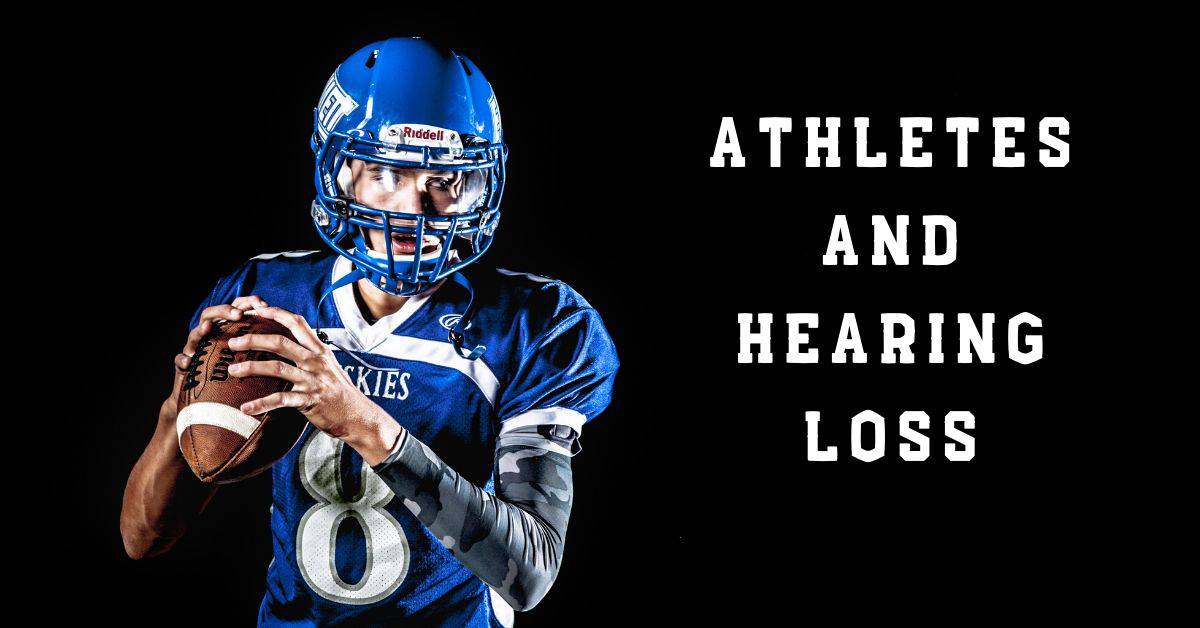
When you think of noisy professions, your mind immediately goes to construction workers, factory employees, or law enforcement officers. These are all notoriously loud jobs, but did you know that athletes also have a noisy job? Both athletes and sports fans are often exposed to extremely loud sounds that can harm their hearing health.
Noisy Stadiums
Did you know that football stadiums are some of the loudest venues you’ll ever go to? Stadiums full of screaming fans, music, and announces can often reach well over 120 decibels! At that volume, even a few minutes will harm your hearing health, and repeated exposure could lead to permanent hearing loss.
Athletes Risk Hearing Loss
Just like construction workers or professional musicians, athletes risk their hearing health during their job. Terry Hanratty, former NFL quarterback, is just one star who’s lost his hearing. He didn’t realize at first that his hearing was changing, but soon his wife started noticing that he’d turn up the volume on the TV far too loud. Before long, hearing loss was affecting his daily life, and his relationships, and he was struggling with daily tinnitus.
Hanratty has sensorineural hearing loss caused by exposure to dangerously loud sounds, as well as by injuries and head trauma he experienced on the field. After realizing he had hearing loss, he got a hearing test, learned more about his hearing loss, and now wears hearing aids to help him hear.
Talking About Hearing Loss
Hanratty openly talks about his hearing loss and wants to educate his fans and fellow athletes about the dangers of exposure to loud noise. Many of his team-mates have also suffered at least one head trauma, and many risk tinnitus and hearing loss either during or after their careers.
Hanratty wants to break the stigma surrounding hearing loss, and make people realize that not only seniors wear hearing aids. People of all ages can have hearing loss, and no one should be embarrassed by hearing aids. In fact, modern hearing aids are very discreet, and are smaller than earbuds or AirPods.
Sports Fans Risk Hearing Loss
The thrill of the game and the excitement of the crowd is what makes a live game so exciting. You love nothing more than a Saturday afternoon at the football stadium, getting to be part of the roaring crowd cheering on your favorite players, and stomping your feet alongside 100,000 other fans as the music hypes you up. However, all that noise that’s so invigorating is the problem.
As more and more athletes complain about hearing loss, the NFL has added hearing checks to player’s routine physicals, so players can monitor their hearing health more closely. However, nothing is being done about the noise in the stadium, or the millions of fans who don’t realize they’re damaging their hearing.
Know When to Protect Your Ears
It’s safe to assume that a football game or a rock concert will be very loud, and both these activities can damage your hearing. If you want to know when to protect your hearing, you can download a free decibel reader app on your phone, and test sound levels wherever you are. If sounds are louder than 85 decibels you need to protect your hearing. A good rule of thumb is that if you can’t comfortably hear the person next to you and must yell to have a conversation, it’s too loud! You should both be protecting your ears.
Protecting Your Hearing
To protect your hearing, you need to be aware of sounds that can damage your hearing. Think about the volume of the TV, and turn down the volume on your headphones or earbuds. Watch for dangerously loud sounds on the subway, at the movie theater, when you’re mowing your lawn, or when you’re at work.
Always protect your hearing with appropriate hearing protection. Foam earplugs are inexpensive and lightweight, and you can have a few extras in your bag to give to friends at the football game. Wax earplugs are another good option for noisy activities. If you need hearing protection every day, you should consider earmuffs which block out more of the sound, or even digital hearing aids that are custom molded to fit your ear and protect your hearing.
